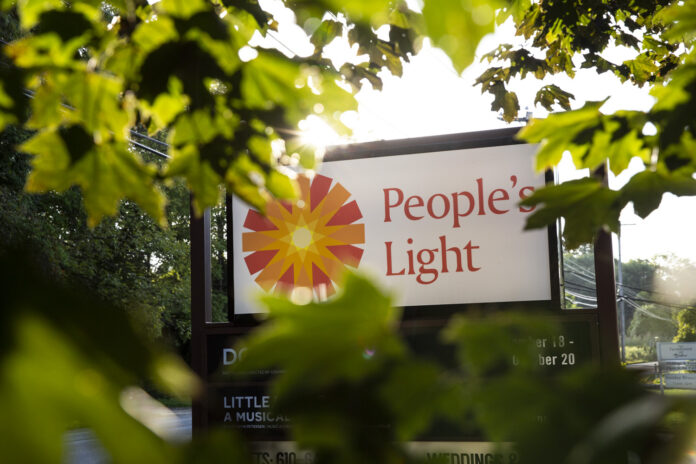With the intention of amplifying the stories of LGBTQ+ people of color, members of Malvern-based nonprofit theater company People’s Light are launching Queerways, PA. The initiative is a play and community engagement program that advances theatrical works based on stories by queer and BIPOC communities in the Greater Philadelphia region.
People’s Light Associate Artistic Director Steve H. Broadnax III and Artistic Director Zak Berkman conceived of Queerways following discussions about the need for more stories that center LGBTQ+ identities within communities of color. Black and brown queer playwrights will be commissioned to collaborate with local LGBTQ+ and BIPOC organizations to “surface stories about the many experiences of being queer and of color in Chester County, PA,” Lisa Portes, associate producer and director of new works at People’s Light, said in an email.
Portes’ role, as related to Queerways, is to work with People’s Light artistic staff to seek out playwrights who would be a good fit for the program.
“For BIPOC LGBTQ+ audiences, we hope our writers reflect or unearth experiences that resonate with their own and that People’s Light becomes a home for the stories of queer folks of color in Eastern PA and beyond,” Portes said. “For audiences that do not identify as BIPOC LGBTQ+, we hope Queerways, PA does what theater does best: expand our understanding of one another’s lived experience and thereby deepen our collective humanity.”
Broadnax’s new play, “Bonez,” will mark the launch of Queerways on Sept. 22. Classified as “black horror,” “Bonez” follows a group of Black men who cloak their need for emotional and physical connection behind high-stakes games of dominos. The play “unveils truths and unearths ideologies around masculinity,” Broadnax said.
“Specifically, I’m trying to unearth where men’s definitions of masculinity come from, especially when you’re dealing with their childhood, other men in their life. Where do we get being a man and how being a man is defined as, and where were those definitions programmed into us as boys? The horror part is because I believe that whatever definitions that you program in young boys, it haunts them in their manhood.”
Broadnax explained that he could not explore masculinity without examining its relationship to queerness. He also feels that few stories delve into the idea of masculinity. As a Black same-gender-loving man, Broadnax wanted the basis of the play to be an authentic conversation among a group of men of color. One of the characters in the play is queer.
“We would talk about anything from sex to sports to politics, everything,” Broadnax said. “There were different groups of men, and when we had these conversations, it was so amazing — the points of view that came up, more so to investigate what I landed on in my social research: At the end of the day we all were little boys that were tainted in some way with this ideology about masculinity that we thought invalidated us.
“But rarely do we investigate and understand these narrow definitions of what a man should be that have been taught to us wrong, which affects the rest of the world and other interpersonal relationships. From the very toxic male point of view, there’s a fear of intimacy, there’s a fear of the effeminate. You watch how these men have to face their peers and interpersonal relationships.”
In terms of the importance of Queerways to BIPOC and queer people in the theater community, Broadnax cited his own artist bio, which says in part, “you don’t know who you are until you see your own reflection.”
“I think it’s important for the BIPOC and queer community to see ourselves and see us living in this play, but also to see people outside of the community, to see more stories, to normalize our humanity with everyone else,” Broadnax added. “The more queer and BIPOC stories we can [see], it normalizes that we too are American, we too are human.”
The Queerways team is in the process of assembling its first cohort of writers, one of whom is playwright, librettist and TV writer Harrison David Rivers, whose mission aligns with that of Queerways. His artistic statement reads in part:
“I write for the theater because theater is the most human
thing I know.
I write to assert my humanity in a country that tells me
[and others who look like me]
that our lives don’t matter.
I write to assert that my black queer body
[and other black queer bodies]
are worthy of narrative space.”
For more information, visit peopleslight.org.

